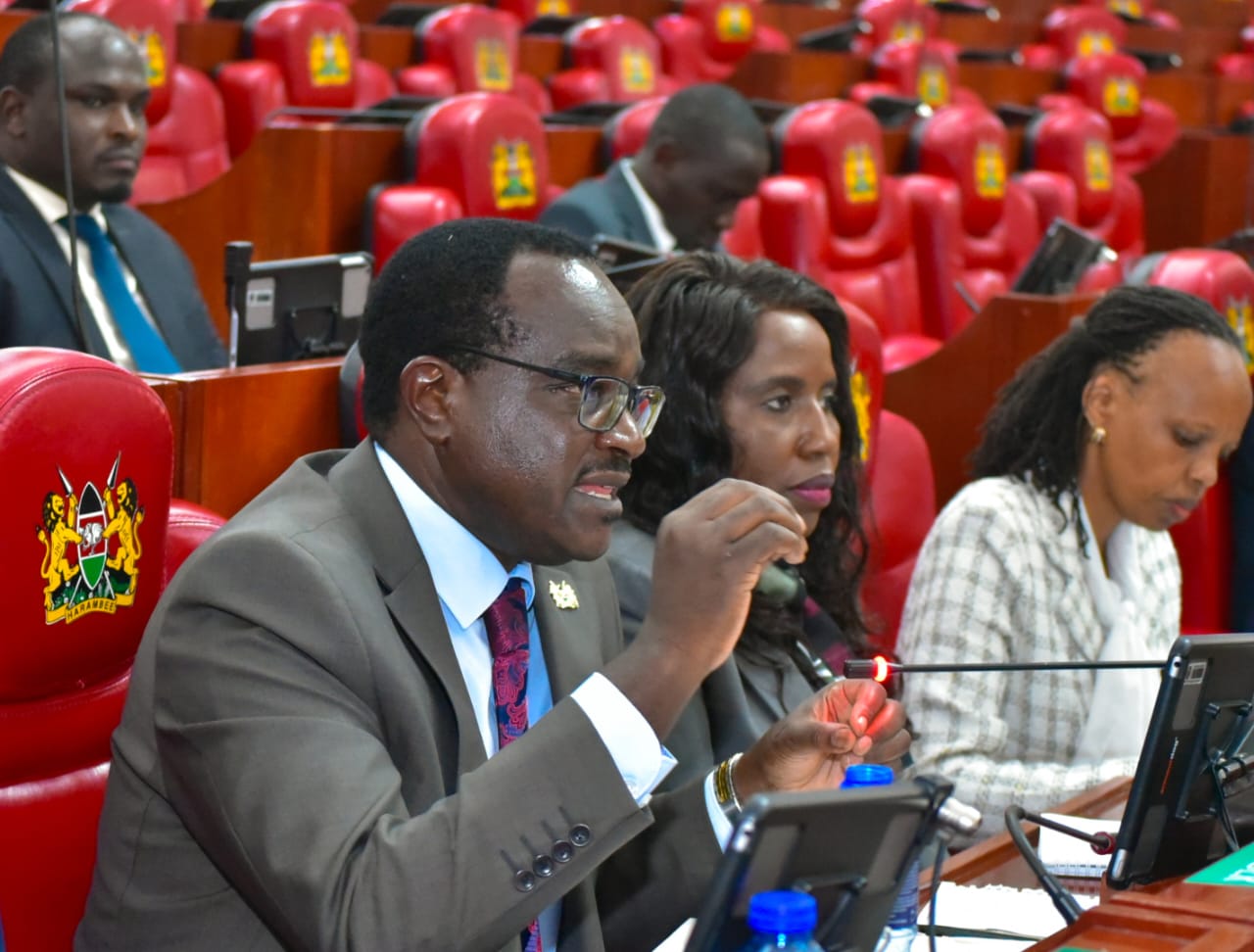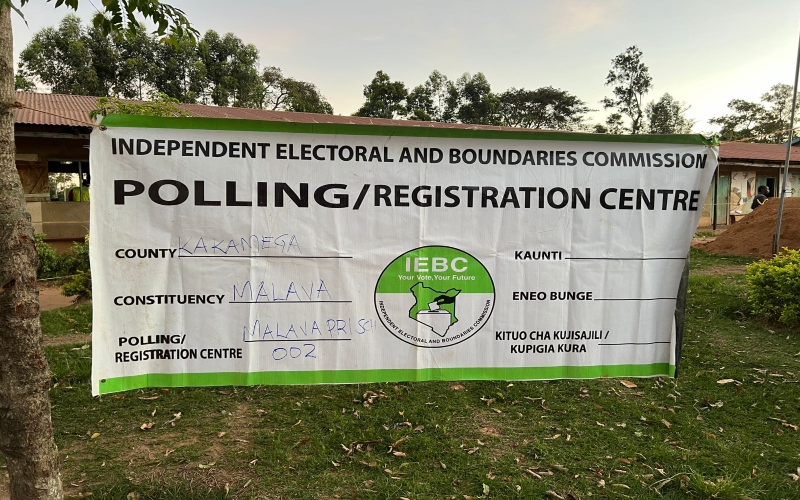Over 343,000 trained teachers remain jobless despite TSC registration

CS Ogamba said the crisis stems from limited budgetary allocations and uneven teacher distribution across counties.
A total of 343,485 trained teachers in Kenya are registered with the Teachers Service Commission (TSC) but remain jobless, Education Cabinet Secretary Julius Ogamba has revealed.
Appearing before the Senate on Wednesday, Ogamba said the crisis stems from limited budgetary allocations and uneven teacher distribution across counties.
More To Read
- Kenya requires Sh72.8 billion annually to fill 100,000 teacher shortage - report
- Ruto announces recruitment of 24,000 more teachers by January to ease national shortage
- Teachers’ medical benefits expanded as SHA cover replaces Minet from December
- Teachers’ Unions demand clarity as TSC plans to move 400,000 educators to state health scheme
- TSC reschedules teachers’ promotional interviews in honour of the late Raila Odinga
- Teachers slam TSC for barring union activities in schools during third term
He revealed that registration with TSC is voluntary and not all graduates have complied, suggesting the number of unemployed qualified teachers could be higher.
The CS, however, said the Ministry of Education, in collaboration with the TSC, is working to address the crisis through joint recruitment efforts and sustained lobbying for increased funding.
“To mitigate the teacher unemployment crisis, the Ministry and TSC are enhancing collaborative recruitment efforts while lobbying for more budgetary allocations. However, disparities persist across counties, prompting calls for a fairer distribution strategy that ensures every region has adequate teaching staff,” Ogamba said.
The CS was responding to questions raised by Nominated Senator Joyce Korir, who demanded data categorised by graduation year and clarification on whether there are employment caps in specific counties.
The CS did not provide a year-by-year breakdown but acknowledged that the problem is complex and compounded by fiscal limitations and geographical inequalities.
His disclosure was part of a broader inquiry by the Senate into the deepening crisis in the education sector, which has been rocked by ongoing strikes, staffing shortages, infrastructure gaps and university funding challenges.
The CS noted that the national teacher shortage currently stands at 98,461. He noted that in the current financial year, 1,429 teachers have been deployed across Makueni County, but many regions continue to suffer from acute shortages.
During the session, Makueni Senator Daniel Maanzo raised concerns over education access in marginalised regions and pressed the Ministry on the expansion of the school feeding programme in drought-prone areas.
In response, Ogamba said the government is already implementing school meals in some parts of Makueni, with plans to expand the initiative. He added that the Ministry is also integrating clean cooking technologies into school kitchens as part of an eco-friendly development agenda.
The Senate session also spotlighted challenges in vocational education. Nominated Senator Catherine Mumma questioned the alignment of curricula between county-run Vocational Training Centres (VTCs) and nationally-managed Technical and Vocational Education and Training (TVET) institutions. She also highlighted the shortage of student accommodation across the country.
In response, Ogamba said that while counties manage VTCs and the national government oversees TVETs, the Ministry has engaged county governments through the Intergovernmental Relations Technical Committee and the Council of Governors to harmonise curricula, establish shared standards, and support legislative reforms.
According to the Ministry, Kenya has 1,156 VTCs with over 141,000 trainees. Demand for boarding facilities is especially high in urban areas and Arid and Semi-Arid Lands (ASALs). To address this, Ogamba said the Ministry is partnering with the African Development Bank, the German Development Bank, and using the National Government Constituency Development Fund (NG-CDF) to support infrastructure development.
He noted that the Ministry is also encouraging Public-Private Partnerships (PPPs) to build hostels on institutional land.
On the state of public universities, Nairobi Senator Edwin Sifuna raised alarm over the recent closure of the Technical University of Kenya (TUK), which remained shut from February 3 to March 18, 2025 due to a lecturers’ strike. He demanded to know what the government is doing to prevent further disruptions.
The CS explained that TUK has been grappling with a massive funding deficit. While the university generates Sh207 million monthly, it requires Sh314 million to operate. Of this, Ogamba said Sh272 million goes toward salaries, leading to delayed statutory deductions and unpaid debts that have now ballooned to Sh12.99 billion.
To stabilise the university, Ogamba said the government has committed Sh145 million in net payroll support for the first half of 2025 and plans to release conditional grants over the next seven financial years, starting from 2025/2026 through to 2031/2032, to support salary payments and clear arrears.
On inclusive education, Nominated Senator George Mbugua requested data on learners with hearing impairments and sought clarity on the policy direction for inclusion in lower primary schools.
The Ministry reported fluctuating enrolment figures: 13,099 in FY 2022/23, increasing to 19,119 in FY 2023/24 before dropping to 11,399 in FY 2024/25. The Ministry indicated that the numbers include students in special schools, integrated units and mainstream schools.
Ogamba reaffirmed the government’s commitment to inclusive education, citing the Sector Policy for Learners and Trainees with Disabilities (2018), which allows parents and guardians to choose between special, integrated or mainstream schools depending on available support systems.
He said government support includes a capitation of Sh1,420 per learner annually, a top-up of Sh2,300 for those with special needs, and an additional Sh11,000 for boarders. However, he clarified that boarding schools are not mandatory and the government is working to strengthen day school support systems.
The Senate also discussed the burden of the Competency-Based Curriculum (CBC) on school heads. Kakamega Senator Boni Khalwale questioned whether the government intends to review the remuneration of primary school headteachers now tasked with overseeing pre-primary and Junior Secondary levels.
Ogamba said a comprehensive job evaluation is in the pipeline. He said the Salaries and Remuneration Commission (SRC) has received proposals to inform the 2025–2029 Collective Bargaining Agreement (CBA), with the review expected to take place during the 2025/2026 financial year. The evaluation, he said, will factor in expanded job content, workload increases, and newly created teaching roles under CBC.
Top Stories Today















































